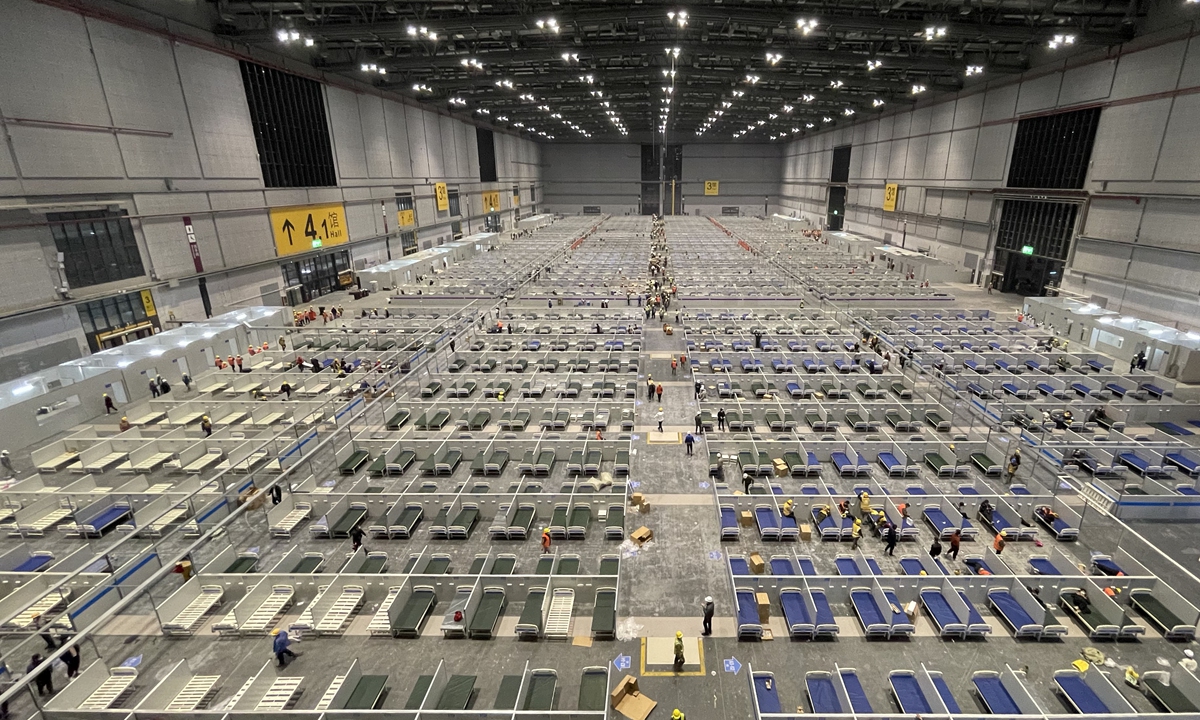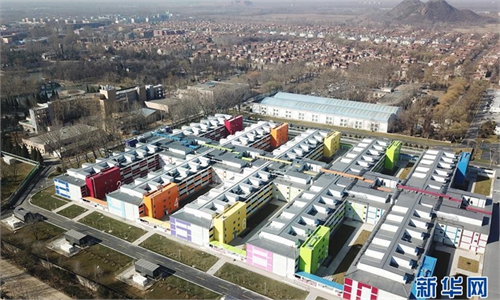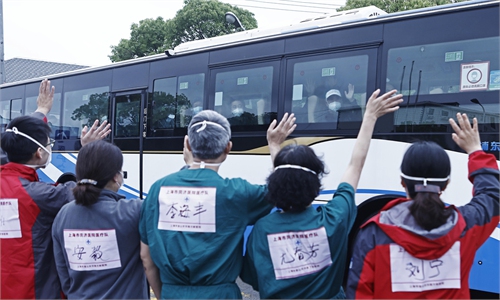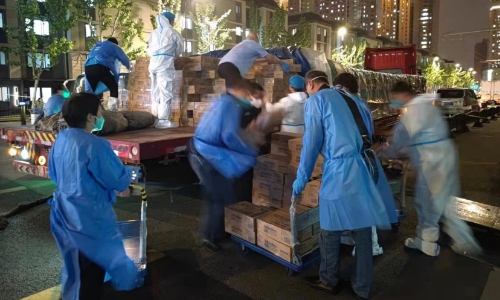Top medical expert calls for the inclusion of makeshift hospitals' operation system into city's security system

The largest makeshift hospital in Shanghai, renovated from National Convention & Exhibition Center (Shanghai) Photo: Xinhua News Agency
"Shanghai's medical system has responded well to the outbreak," Chen Erzhen, deputy head of the Ruijin Hospital in Shanghai and the head of Shanghai's central quarantine treatment team, said during an academic webinar on Medical Treatment and Emergency Management under COVID-19, noting that a complete set of emergency coordination mechanisms of the makeshift hospitals should be included in the city's security system.
Chen has been in charge of six makeshift hospitals in Shanghai during the latest outbreak of COVID-19. He is also the head of the largest makeshift hospital in Shanghai, set up at the National Convention and Exhibition Center (NECC), with over 50,000 beds.
There were more than 120 makeshift hospitals during the latest outbreak in Shanghai, with over 300,000 beds at its peak. 110,000 beds in 63 makeshift hospitals are still in operation with the number of municipal makeshift hospitals reduced from ten to five, Chen said.
However, the management of these large-scale city-level makeshift hospitals is quite difficult. "A large number of people in makeshift hospitals poses great challenges to the prevention and control of hospital-acquired infections," said Chen.
Makeshift hospitals in Shanghai could only provide the most basic medical services in the early days and it was very difficult to carry out the emergency rescue. "Some makeshift hospitals are made up of medical workers from different hospitals and provinces," said Chen, noting that the arrangement of efficient collaboration between medical teams from different provinces is a major challenge.
Chen said his team has worked hard in emergency response, including setting up observation indicators for adults and children to strengthen the evaluation of infected patients to achieve early detection, disposal and transfer, and it is reported that this system is still being used and has achieved good results.
As the largest makeshift hospital in Shanghai, the facilities at the NECC produce tens of thousands of nucleic acid samples every day. At its peak, it left 100 tons of garbage, accounting for 8% of the city's total. "There are not only medical safety problems, but also various safety risks," added Chen.
The makeshift hospital has established an adequate operation guarantee system, including the establishment of a 15,000-square-meter warehouse for storing medical and daily supplies. "We have a list of materials and strict standards to plan exactly how these supplies are distributed and used," Chen introduced.
Makeshift hospitals are like a "small city", involving medical treatment, property management, firefighting, logistics, public security and other aspects, all of which are indispensable and interdependent.
The makeshift hospital is about to be closed but the system implemented on its operation can be considered as a long-term synergistic mechanism to serve society in the future, Chen noted.
Global Times



